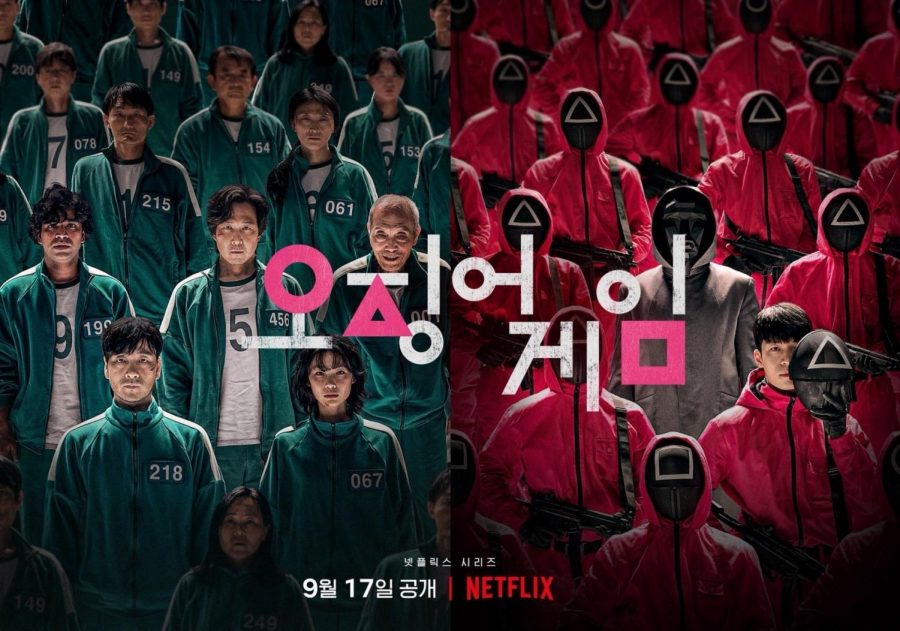“Squid Game” Exposes Our Bloody Capitalist Reality
October 20, 2021
Netflix’s new South Korean thriller show “Squid Game” has amassed immediate and lasting popularity across the globe since its release this fall, becoming one of the biggest ever series launches in Netflix history. Its simple yet intriguing plot, unflinching violence, eccentric characters, and iconic candy-coated visuals make it an addictive watch for viewers. However, beyond its exciting exterior, Hwang Dong-hyuk’s “Squid Game” is a nightmarish commentary on capitalism, exposing the inhumane acts we are willing to commit to escape economic disparity.
“Squid Game” follows Gi-hun, a divorced father deep in debt attempting to care for his ill mother and innocent daughter. After a mysterious encounter in a train station, Gi-hun is enlisted in the Squid Game, a battle-royale arena in which 456 players volunteer to compete to the death for a 45 billion Won prize ($38.6 million USD). He forms a ragtag team of fellow players, consisting of an elderly man on the verge of death, a young North Korean defector, a plotting law student, and a wholesome migrant worker, all deeply in debt and desperate for money to support their families. Together they struggle through a series of simple yet deadly Korean children’s games, until there is one player left alive. The entirety of the operation is run by masked soldiers, with identities unknown to viewers until a twist of the knife in the last episode. The world of “Squid Game” is a simple one: you make money, or you die.
This series’ sharp commentary on class divide and capitalism is fitting for today’s social climate. The United States has some of the highest rates of wealth inequality in the world. In a country where a hospital trip can be enough to bankrupt a family of four, it’s no wonder “Squid Game” has enraptured American audiences. It has us questioning the lengths in which we would go to ensure financial stability for ourselves and our families. The game even gives its players the illusion of free will: they can choose to leave the game, and they can choose to stop the game if the majority agrees. The reality is these people are forced by their society and economic situation to participate. If they left the game they would suffer the debt they still carried on the outside world. The meticulous and intentional world building of “Squid Game” simplifies our current society and paints a chilling portrait of our peers around us. The variety of characters in the show allow us to identify the player we see ourselves in, and find out whether or not we would survive this brutal game, and in extension, whether or not we would succeed in our capitalistic society.
From the out-of-touch celebrities tweeting about COVID-19 from the safety of their 5,000 square foot mansions, to the exposure of Jeffrey Epstein’s predatory private island, many American viewers find terrifying relevance in “Squid Game’s” twisted plot orchestrated by the richest of the rich. “Squid Game” differs from its other battle-royale type predecessors such as “Hunger Games” in that it’s not futuristic or dystopian: it’s our reality.



